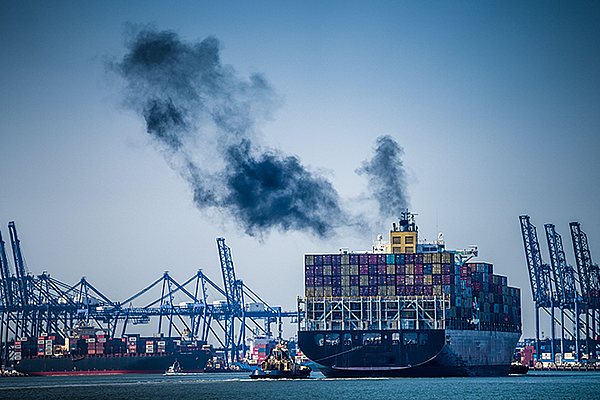
New Carbon Tax up for discussion at this week’s Marine Environment Protection Committee (MEPC) meeting at the IMO seems set to raise freight costs to shippers beyond their already record levels.
Such is the serious fear of the global business organisation representing cargo owners which export and import across international supply chains, the Global Shippers Forum.
Following the decade-long efforts of the International Maritime Organisation (IMO) to gain agreement on the so-called IMO 2023, a set of energy efficiency measures for existing ships, which final take effect next year, its MEPC will now discuss a further proposal put forward by the shipping industry to introduce a Carbon Tax on bunker fuel. This is intended to incentivise a switch to lower carbon emitting fuel options and could eventually double the current price of tradition bunker fuels.
In the first instance GSF is urging regulators to make sure that the potential for shipping lines to remove older tonnage from the market, which they deem uneconomic to upgrade to progressively more demanding efficiency levels, is not used as a disguised means for capacity management resulting in higher freight rates.
Moreover, there is perhaps a more obvious danger to shippers. Given the widespread use of Bunker Adjustment Factors (BAF) and the rash of new surcharges ahead of the introduction of Low Sulphur Fuel in 2020, shippers will be wary of how much of this proposed Carbon Tax will just be passed through to them.
As the Director of GSF, James Hookham points out, “Shippers will be forgiven for thinking that the proposal, and its consideration at the IMO will inevitable result in still higher freight rates. That’s because the shipping industry has a very efficient mechanism for passing through higher fuel costs in the form of BAF; a surcharge to cover variations in fuel price. There are few reassurances in the existing proposals that a Carbon Tax won’t just be passed through as an added cost for shippers.”
Hookham goes on to demand, “If the shipping industry is serious about Market Based Mechanisms as a route to decarbonisation then it needs to insulate its customers from their inflationary effects otherwise emissions will be reduced by suppressing demand for world trade rather than by incentivising the step-changes in fuels and propulsion technology, so urgently required.”
GSF is urging the IMO members on the Marine Environment Protection Committee to give due consideration to the interests of those who constitute the drivers of international trade, exporters and importers, and given the potential sums of money involved, insist on any Carbon Tax mechanism be fully transparent with exposure to scrutiny.
As Hookham concludes, “The MEPC needs to think through the realities of the shipping market and avoid simplified comparisons with experiences in other sectors of their economies”





